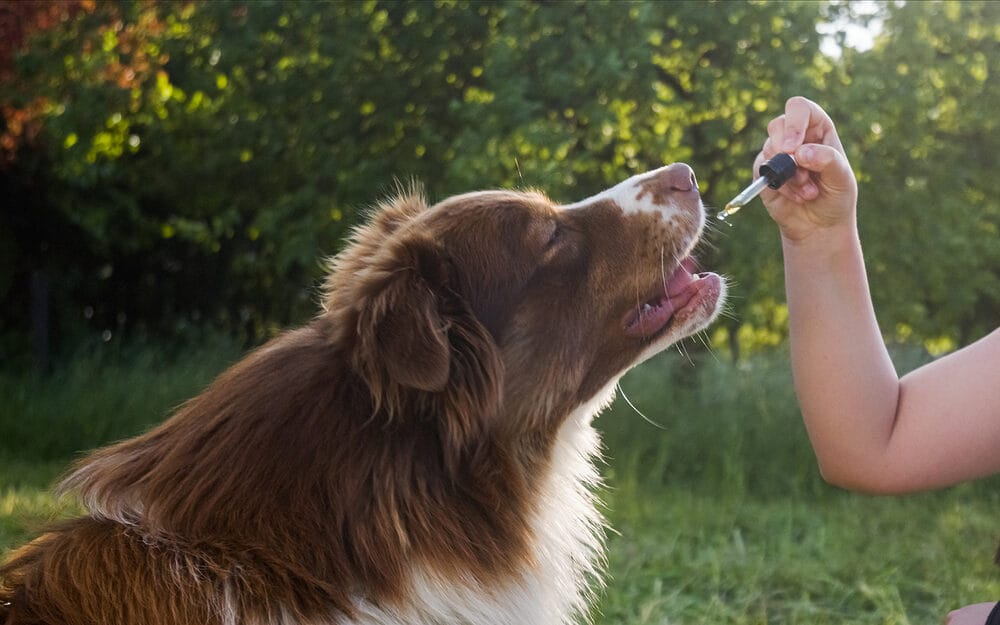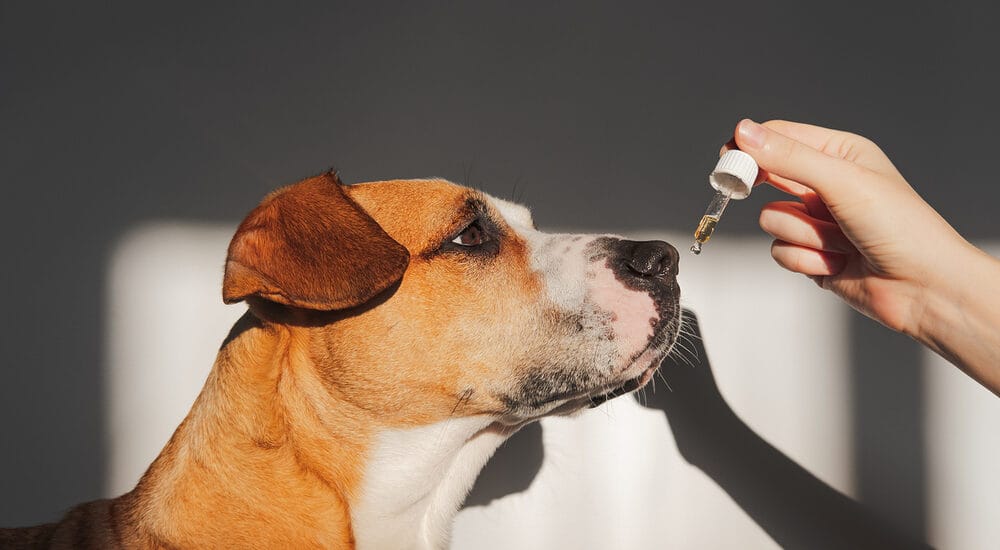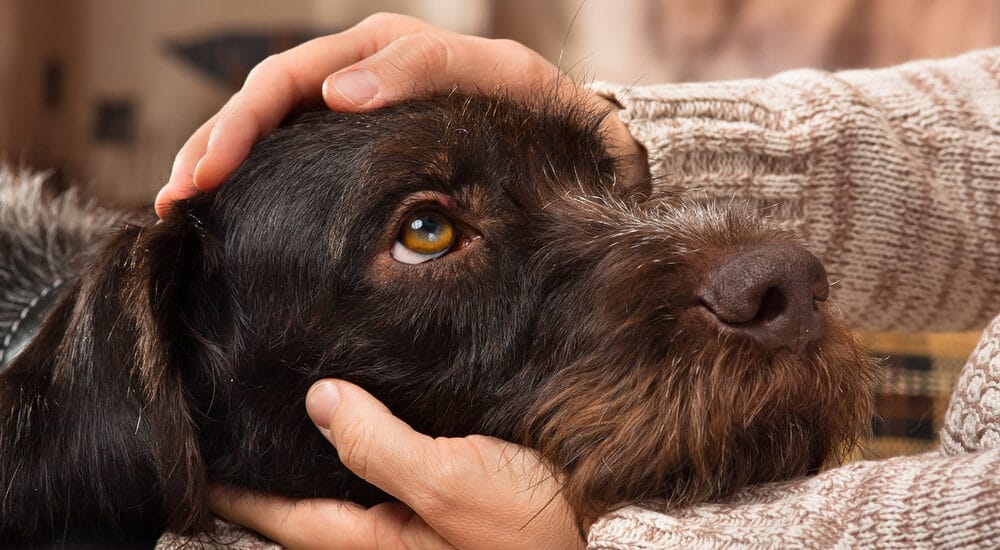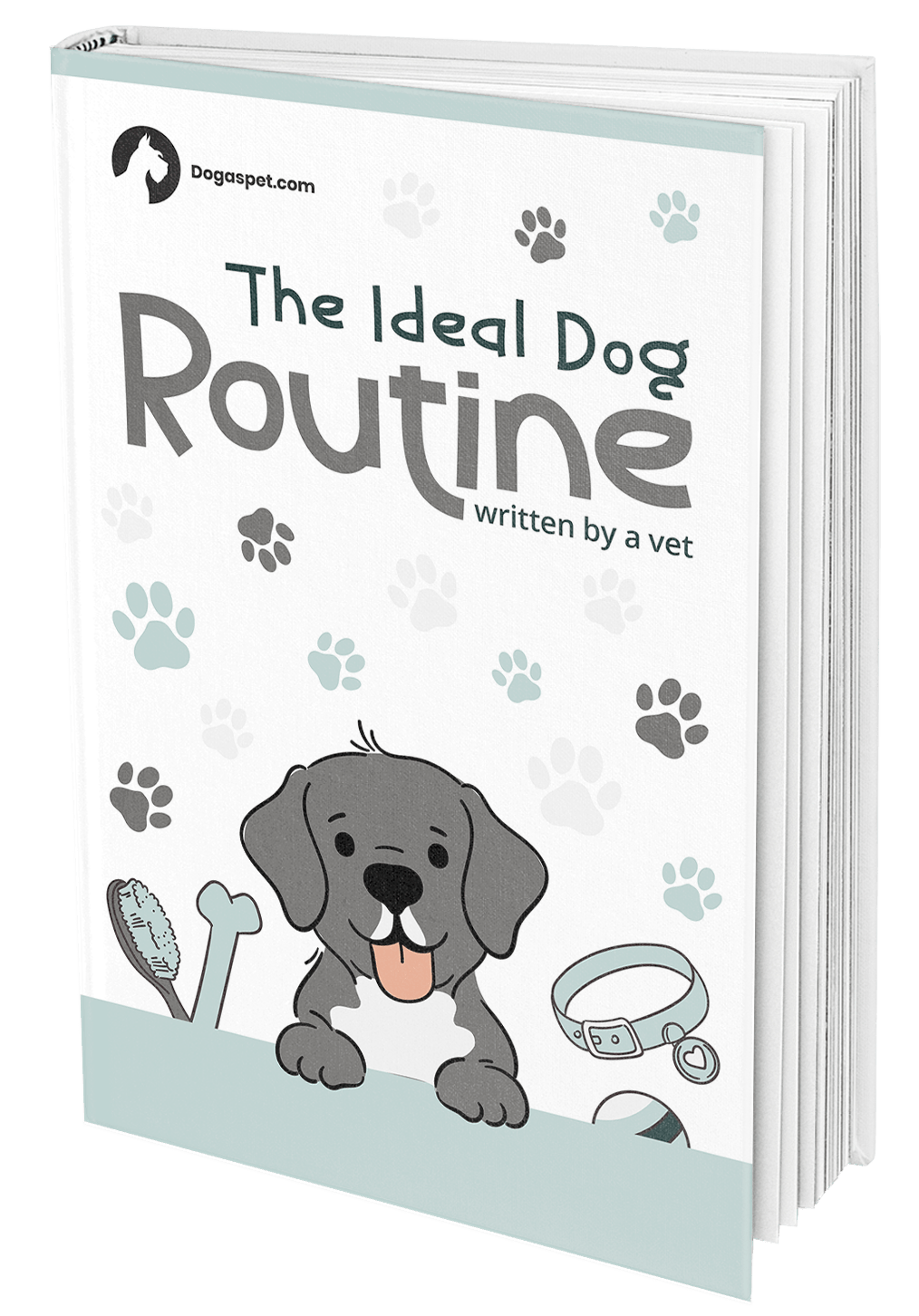
There may be some natural solutions to your dog’s ailments. Not only that, but these solutions may also help with maintenance and overall well-being. These miracle remedies are essential oils. Not only can they help relax us, improve our sleep, and also alleviate certain pains, they may be able to do the same for your dog.
We know many pet parents out there may not want to resort to pills and ointments and try to seek an alternative solution. While essential oils may be able to help, they also come with risks. We need more scientific research to be sure, but while more is being conducted, here is what we know.
The Best Essential Oil For Dogs With:
Best Essential Oils for Skin and Coat Health
A dog’s inner health is often mirrored on the surface, and by that, we mean on his skin and coat. A healthy dog, whether he has a thick double coat or a shorter single coat, can suffer from flaky skin, itchy red spots, and even bald spots and fur coming off in tufts if there is an underlying issue.
Here are some essential oils to help maintain your dog’s skin and coat health:
Remember to consult with a trusted vet first before you add anything new to your dog’s healthcare routine.

Itchy skin and ear infections
If it’s itchy skin that’s bothering your pooch, lavender, and chamomile could be of help. Chamomile has been proven to be effective on humans who have eczema and other skin issues.
Ear infections are quite common in dogs, especially if they have droopy ears. Lavender and chamomile can come into play again due to their soothing properties. Tea tree oil works well on humans, but don’t try that on your pooch because it can be toxic if ingested.
- Chamomile Essential Oil
- Lavender Essential Oil

Fleas, ticks, fungus, and hair loss
Cedarwood oil is a common one used to prevent fleas and ticks if it’s diluted properly and applied to your dog’s coat (not skin). For fungus, geranium oil has the possibility to alleviate the issue, but there still needs to be more research on the topic.
As for hair loss, we rely on the classic chamomile and/or lavender oil treatment. These two oils are the ones that are generally considered safe for dogs in small diluted amounts. They are beneficial for their skin-soothing properties and have also been known to help with skin irritation as we mentioned.
- Diluted Geranium Essential Oil
- Chamomile Essential Oil
- Lavender Essential Oil

Cuts, hotspots, ringworm, and chewing paws
Cuts can happen if you have a rambunctious fur baby, and once again lavender oil comes to the rescue for cuts and hotspots. Aside from being soothing and possessing inflammatory properties, lavender oil is also antiseptic. It also happens to be anti-microbial, anti-bacterial, and anti-fungal, so we’ll definitely see this miracle oil pop up again later on.
As for ringworm, geranium oil is an option but we still need more research on this specific oil. Paw chewing can be an indicator of gut health issues and allergies. If your dog is doing this, we suggest a visit to the vet first. But, if it’s as simple as irritated paws due to the weather or stress-related chewing, then chamomile, our number two miracle oil is the one to use.
- Geranium Essential Oil
- Chamomile Essential Oil
- Lavender Essential Oil
Essential oils for Dog Health and Wellness
We now move on to essential oils for general maintenance, health, and wellness.

Anxiety
There are whole Facebook groups out there for dog parents with anxious and overreactive pups looking for support. Did you know that essential oils can also play a role in reducing anxiety?
Again, we see number one lavender and number two chamomile oils step up to the plate. They both have calling qualities and can help some dogs in stressful situations.
- Lavender Essential Oil
- Chamomile Essential Oil

Cancer
Unfortunately, there is no miracle cure for cancer for humans or dogs. However, there is some preliminary research that shows frankincense has some anti-cancer properties. Again, more definitive research is needed.
- Frankincense Essential Oil (Research Still To Be Done)

Diarrhea
It’s no secret that most dogs can get diarrhea pretty easily, and one of the simplest ways to upset their stomachs is to switch their food too often or too quickly. Eating random stuff off the floor also causes it, and we all know dogs have a tendency to do it! If your pooch is having tummy issues, chamomile can help, just like it can for us.
- Chamomile Essential Oil

Respiratory Problems
Respiratory issues are much more serious and essential oils can only help alleviate the symptoms temporarily rather than be a permanent cure. However, myrrh can potentially help with light breathing problems, but more research is needed.
- Myrrh Essential Oil (Research Still To Be Done)

Arthritis
Arthritis is something that can cause senior dogs a lot of discomfort. Every wince and whine from your elderly dog can tug at the heartstrings. In order to help numb the pain, frankincense can be applied, but more research is needed.
- Frankincense Essential Oil (Research Still To Be Done)

Bad Breath
Doggy breath is very common and is something many dog parents don’t mind. However, it can get pretty bad. If it gets to a point where you can’t stand it, then we suggest taking a trip to the vet because there could be oral health issues.
As for an essential oil solution, anything that can mask odors like orange oil can help. But we would advise against turning to essential oils for this specific issue because your dog should not be ingesting them, even if it’s deemed safe.

Car Sickness
Ginger can help fight nausea, which is why its oil is our recommended essential oil for car sickness in dogs. Once again, there needs to be more research on dogs to be sure of the effects.
There are specific sprays on the market to deter chewing behavior, such as bitter apple spray. Using scents dogs dislike, which are citrus scents could work.
As we mentioned, dogs really shouldn’t be ingesting essential oils even if it’s diluted. So in the case of unwanted chewing, we still suggest some good old-fashioned training.
- Ginger Essential Oil (Research Still To Be Done)

Chewing Behavior
There are specific sprays on the market to deter chewing behavior, such as bitter apple spray. Using scents dogs dislike, which are citrus scents could work.
As we mentioned, dogs really shouldn’t be ingesting essential oils even if it’s diluted. So in the case of unwanted chewing, we still suggest some good old-fashioned training.
Essential Oils for Specific Uses
Could certain essential oils help with specific health issues? Let’s find out.

Coughing
What type of cough does your dog suffer from? If it’s kennel cough then a trip to the vet for a quick checkup is necessary just to be safe, although you really just have to wait it out. In the meantime, there are some essential oil selections that can relieve the discomfort such as cypress oil, though we do need more research.
- Diluted Cypress Essential Oil

Mosquito repellent
Mosquitoes aren’t only interested in us, they’ll settle for your fur baby as well. The buzzing and itchiness can really make the summer months grueling, but there is something you can turn to. Cedarwood and geranium oil can keep mosquitoes at bay.
- Diluted Cedarwood Essential Oil
- Diluted Geranium Essential Oil

Mites
Mites are also pests you and your dog may need to worry about. Cedarwood oil pops up again but its effects on dogs with mites have yet to be thoroughly researched.
- Diluted Cedarwood Essential Oil

Cysts
Cysts are sacs that are filled with fluid or even air and they can appear externally or internally on dogs. Cysts are generally benign growths but a small percentage has been known to cause issues.
If you see the cyst creating discomfort for your dog, diluted frankincense oil applied topically can help. Again, you should consult with your vet first as research on this topic is still lacking.
- Frankincense Essential Oil (Research Still To Be Done)

Warts
Warts are annoying growths that plague humans and dogs. Like with cysts, frankincense oil may be used to fight these skin growths, but we would suggest seeking approval from your vet first.
- Frankincense Essential Oil (Research Still To Be Done)

Safe use for blind dogs
Blind dogs rely even more on their noses to get around and understand the world. It’s safe to believe that their sense of smell is even extremely heightened, so we would recommend avoiding anything too strong. Our suggestions for non-irritating oils are the big two – lavender and chamomile.
- Lavender Essential Oil
- Chamomile Essential Oil
Are the Essential Oils Safe to Use?
Essential oils can be used in tandem with traditional treatments for our health and wellness. Their use on dogs is now being explored, but there needs to be more in-depth exploration. Essential oils for the diffuser or ones used topically are extremely concentrated and should always be used cautiously around your dog.
Never should your dog ingest the oil and you should prevent him from licking it if applied topically. Here are some extra safety tips that you must follow once you get vet approval.

Dilution

As said, these oils are highly concentrated so you must dilute them before use. Without dilution, these oils can cause skin irritation or even worse symptoms such as nausea, vomiting, dizziness, and other adverse effects.
The exact ratio will vary depending on the oil, but in general, you should go with 1:50. This means one drop of essential oil to 50 drops of carrier oil. A carrier oil, also known as a base oil, is usually a vegetable oil. The ones that we recommend are olive, coconut, and sunflower.

Choose Safe Essential Oils

This goes without saying, but you should pick from a list of safe oils we have here. Not all essential oils are safe for dogs. In fact, there are more harmful ones than ones that are beneficial.
There are also websites out there with conflicting advice, which is why we always recommend asking your vet. When in doubt or to be extra cautious, only use lavender, chamomile, frankincense, myrrh, ginger, and cardamom.
Essential Oils Proven To Be Safe For Dogs

Gradual introduction

Just like when you switch your dog’s food, essential oils should be introduced gradually. Start with less than a drop of essential oil in the carrier oil and slowly increase the amount over a 7-day period at least.

Monitor Your Dog

What works for one dog may not work on yours. There is also a possibility that your dog will have adverse effects from an oil that’s deemed safe. So, once you administer the oil, it’s important to keep a close eye on your pooch for the next few hours to make sure he doesn’t lick the spot or react to it.
If you notice your dog exhibiting strange symptoms, such as nausea, vomiting, dizziness, itchiness, or any change in behavior, head to the emergency room right away.

Vet approval

Before you try anything new, be sure to get the green light from your vet. Your regular veterinarian has the best picture of your dog’s health. They may have information about what your dog is allergic to and what he should stay away from. Your pooch may also have chronic health conditions that may not mix well with essential oils. The bottom line is, trust your vet.
Conclusion – Supplemental not a replacement
Essential oils are not a miracle cure for ailments. Instead, they are supplemental and require the approval of your trusted pet professional. They should never be used as a replacement for proper veterinarian care, and it’s also important to note that the research on their effects on dogs is still ongoing. Your safest bet is to opt for an essential oil that is generally regarded as safe, always dilute it sufficiently, introduce it gradually, and monitor your dog closely.

